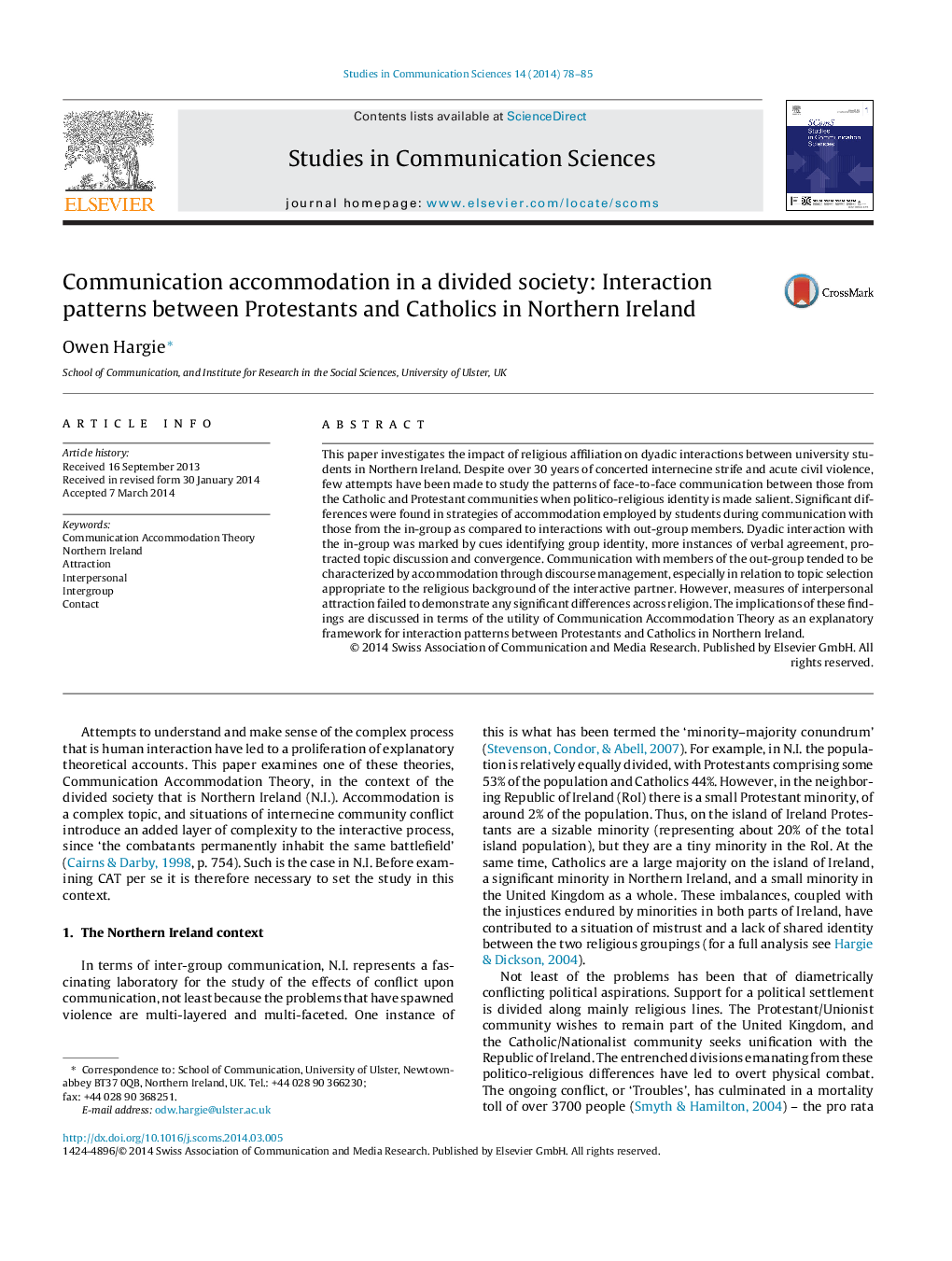| کد مقاله | کد نشریه | سال انتشار | مقاله انگلیسی | نسخه تمام متن |
|---|---|---|---|---|
| 141250 | 162844 | 2014 | 8 صفحه PDF | دانلود رایگان |
This paper investigates the impact of religious affiliation on dyadic interactions between university students in Northern Ireland. Despite over 30 years of concerted internecine strife and acute civil violence, few attempts have been made to study the patterns of face-to-face communication between those from the Catholic and Protestant communities when politico-religious identity is made salient. Significant differences were found in strategies of accommodation employed by students during communication with those from the in-group as compared to interactions with out-group members. Dyadic interaction with the in-group was marked by cues identifying group identity, more instances of verbal agreement, protracted topic discussion and convergence. Communication with members of the out-group tended to be characterized by accommodation through discourse management, especially in relation to topic selection appropriate to the religious background of the interactive partner. However, measures of interpersonal attraction failed to demonstrate any significant differences across religion. The implications of these findings are discussed in terms of the utility of Communication Accommodation Theory as an explanatory framework for interaction patterns between Protestants and Catholics in Northern Ireland.
Journal: Studies in Communication Sciences - Volume 14, Issue 1, 2014, Pages 78–85
